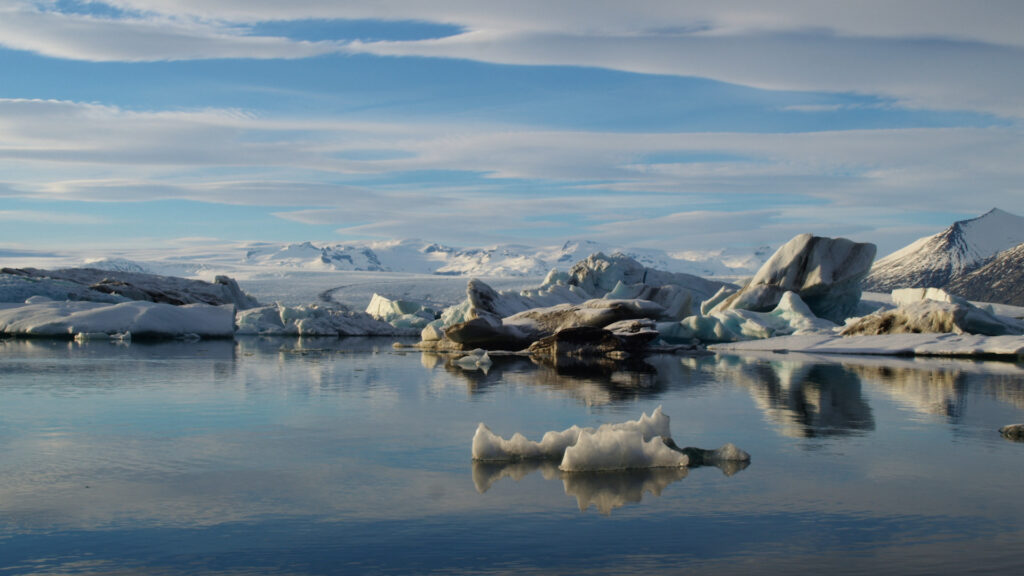Looking at complex geographies through posthuman visualities – the polar silk road in contemporary art practices

Produced with the support of “Cantica21. Italian Contemporary Art Everywhere” – Over 35 section (MAECI-DGSP/MiC-DGCC, 2020)
The doctoral project pursued by visual artist Elena Mazzi brings the territorial and cultural landscapes known as the Polar Silk Road to the forefront of contemporary art practices. How can posthuman visualities bring to light the deep environmental, social, political, and economic changes that are currently affecting the Arctic regions? As the Arctic seas become increasingly navigable due to global warming and the consequent melting of the ice sheet, access to new resources is drastically enhanced, as promoters now get to lay their hands on no less than 20% of the world’s oil, gas, uranium, gold, platinum and zinc reserves. The aim of this research is to develop research-based speculative encounters between geopolitics and visual culture in relation to the Polar Silk Road commercial project, by considering how exploring through art the current political conflict might slow down or drastically transform this plan.
Arctic Regions are complex to define from a geological perspective and subject to rapid changes. Here, intricate relationships between natural resources and humans are interwoven. That is why art practices are fundamental in analyzing the entanglement between economy, geopolitics, ecology, and mobility, using an inclusive approach to different perspectives that go beyond dominant cultural groups and challenge colonial legacies.
Mazzi, through her own work, aims to investigate new tools to visualize the complex relationship between geopolitics and geography, taking into consideration that Arctic regions have devoted particular attention and care to environmental issues and sustainability in the last decades. With this project, she wishes to bridge the gap between the academic world and artistic communities, by opening transdisciplinary spaces for encounters.
Elena Mazzi est doctorante pour la période 2022-2025.